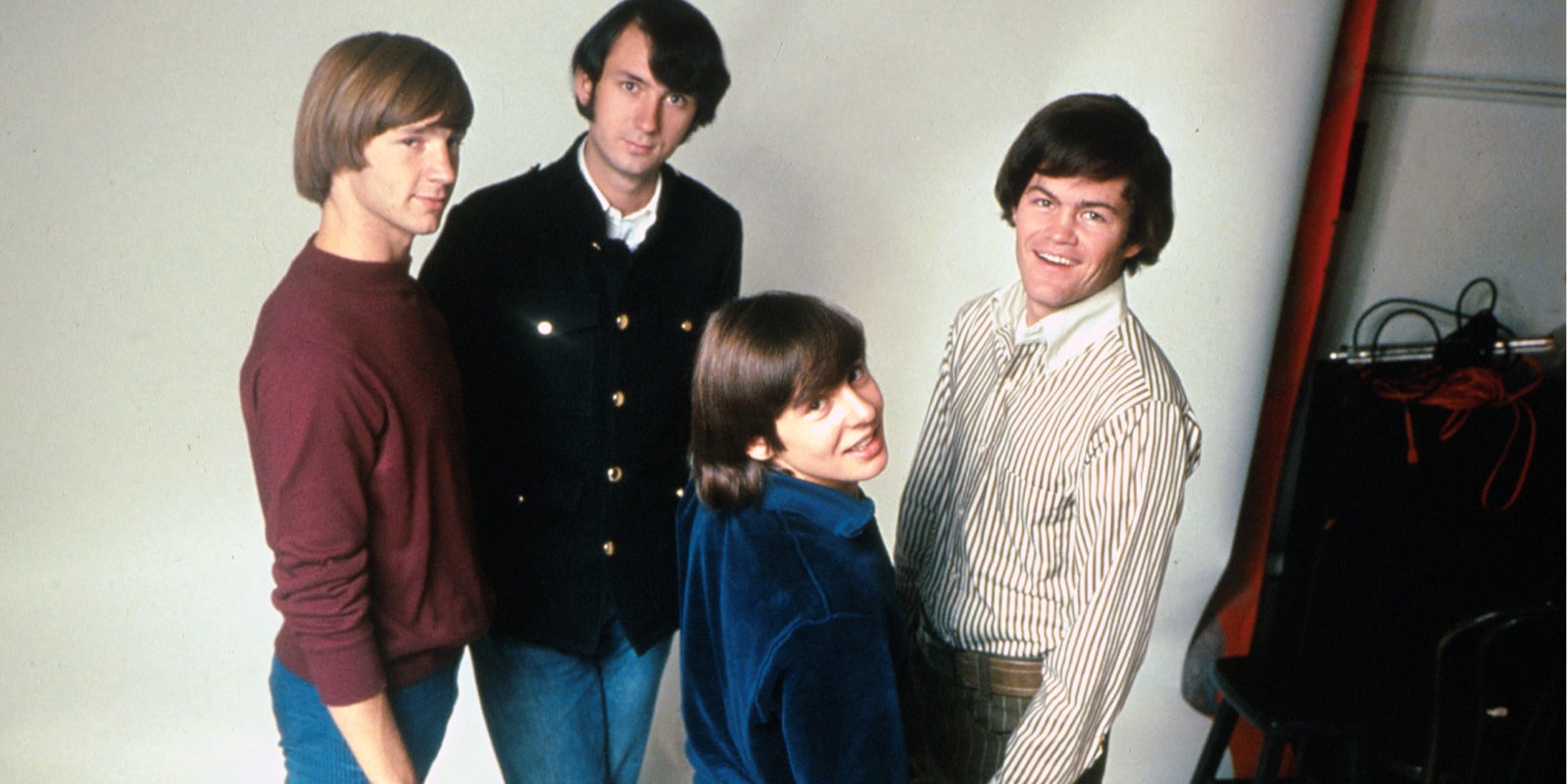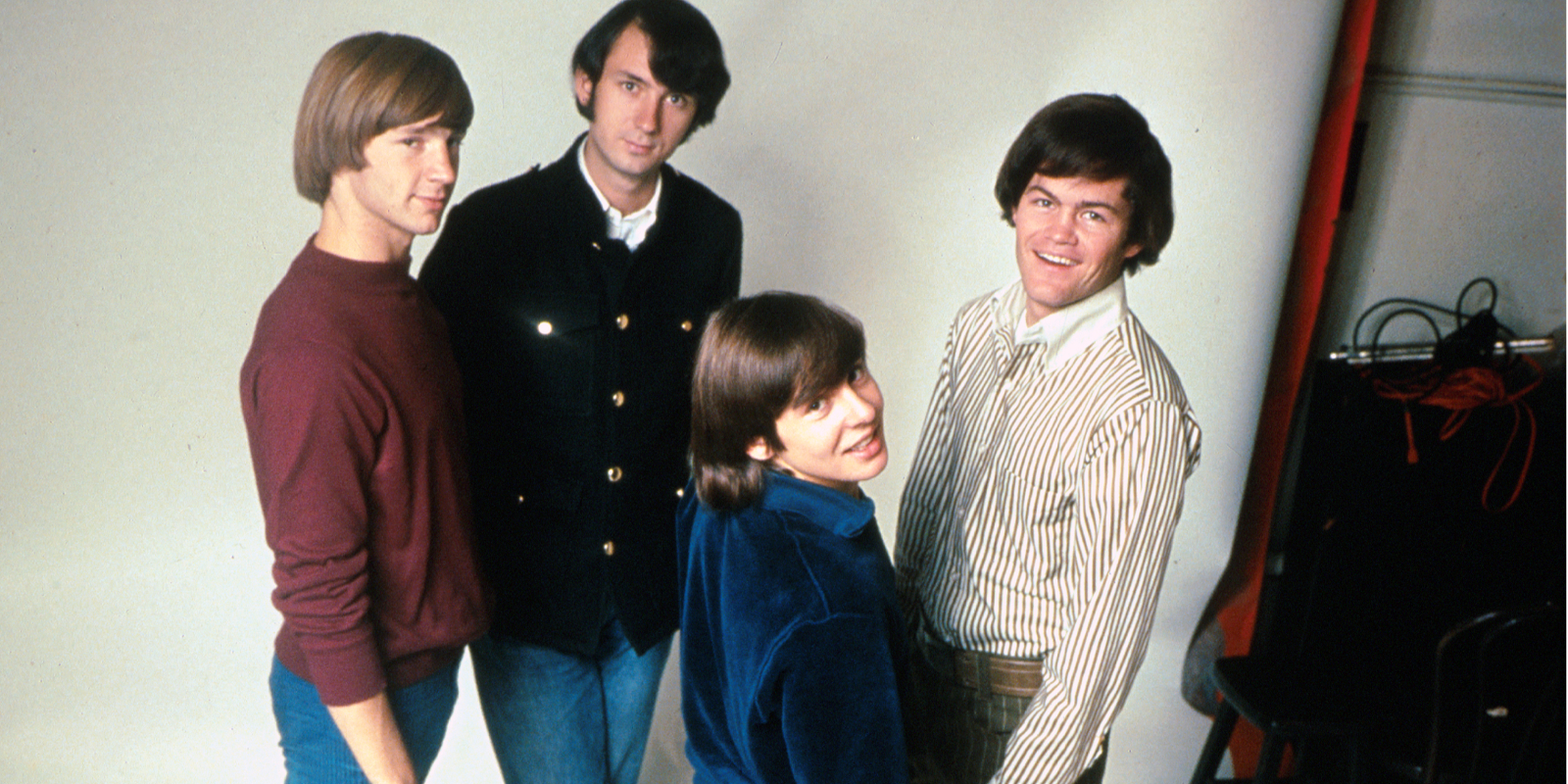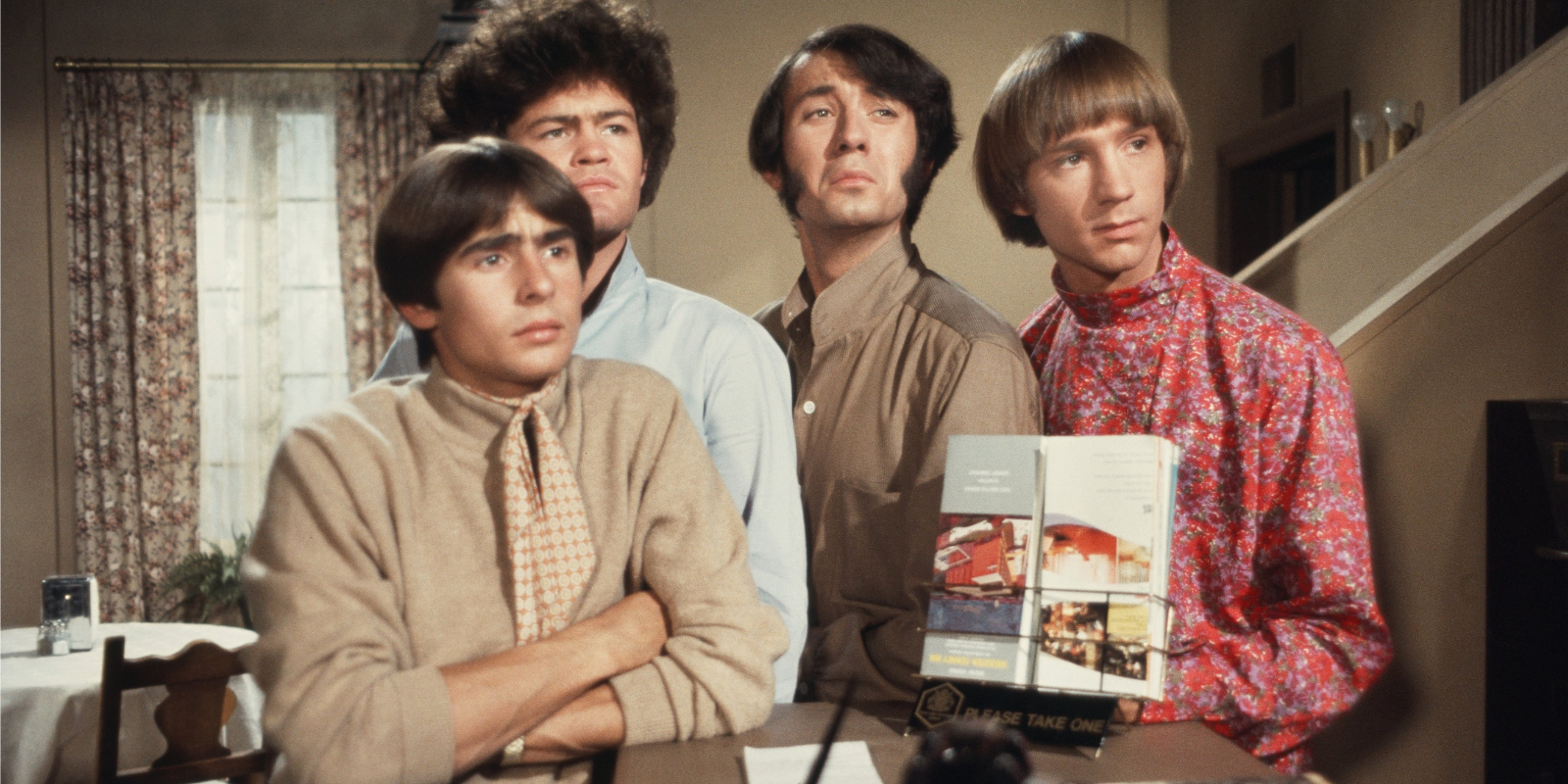
Mike Nesmith Says ‘Dishonest,’ and ‘Debilitating’ Albums Cheated Fans of ‘The Monkees’
The Monkees television series is intertwined with the band’s music, pumped out for their rabid fans over two seasons on the NBC network. However, one band member, Mike Nesmith, said the group’s “dishonest” and “debilitating” albums overwhelmingly cheated fans of The Monkees. Fans eagerly awaited the debut of new tunes with each episode of their weekly television series.

‘The Monkees’ series was groundbreaking for its time
NBC marketed The Monkees series toward teenagers. One of the key ways to capture their attention was to create music used as a precursor to the television show. Therefore, finding a sound resonating with this critical demographic became the most important puzzle ahead of the series debut.
The Monkees television show was groundbreaking for its time for its use of music as a key tool to push the series along and as a way to entice viewers to keep watching. However, behind the scenes, band members, including Nesmith, felt the network resorted to trickery to sell as many records as possible in the shortest amount of time.
Mike Nesmith says ‘dishonest’ albums cheated fans of ‘The Monkees’ TV show and music

In January 1967, Nesmith spoke to The Saturday Evening Post in an interview reprinted by The Monkees Almanac titled “When Four Nice Boys Go Ape!” In the editorial, Nesmith called The Monkees’ music “totally dishonest.”
He said, “Do you know how debilitating it is to sit up and have to duplicate somebody else’s records? That’s what we’re doing.”
The article said that the results were disastrous once Nesmith, Peter Tork, Davy Jones, and Micky Dolenz were placed together in a studio for the first time. Don Kirshner, who produced the band’s music, wanted them to keep pace with a “driving, exciting and frantic young sound,” and they could not.
Therefore, Kirshner came up with a dozen prototype songs from his stable of musicians. As for the band, they added vocals to the already-produced tracks.
“The music happened despite The Monkees,” Nesmith continued at the time. “It was what Kirshner wanted to do. Our records are not our forte. I don’t care if we ever sell another record.”
However, pushed by the exposure of the television show, The Monkees’ music reached a wider audience than their LPs ever could. Their first four albums hit number one within one year, reaching Platinum status with over 1M units sold.
By The Monkees’ third album, the band played all their own music
The Monkees’ third album, ‘Headquarters,’ hit #1 on the Billboard Hot 200 on June 24, 1967—55 years ago today! ?
— The Monkees (@TheMonkees) June 24, 2022
It was the first time the group themselves had creative control over their music, from the songs to the sound.
What’s your favorite ‘HQ’ track? pic.twitter.com/zDG5Voagyj
In spite of the producer’s insistence on using studio musicians to produce Monkees’ music, Nesmith was allowed to write and produce a few tracks for the first two Monkee LPs. He brought Tork in to play alongside the musicians during the recording sessions. However, they were the only two Monkees members involved in the music.
In 1966, The Monkees began a scheduled tour. Therefore, Dolenz quickly got up to speed on the drums while Jones played tambourine. He eventually became proficient enough on rhythm guitar, bass, and drums to fill in when necessary ahead of their debut as a full-fledged band.
For The Monkees’ third record, Headquarters, the Monkees played on every track. They took up the mantle as a foursome for Pisces, Aquarius, Capricorn & Jones Ltd., The Birds, The Bees & The Monkees, and Head.
Subsequently, Head was the last Monkees album featuring the original quartet. Tork left the band in 1968.


